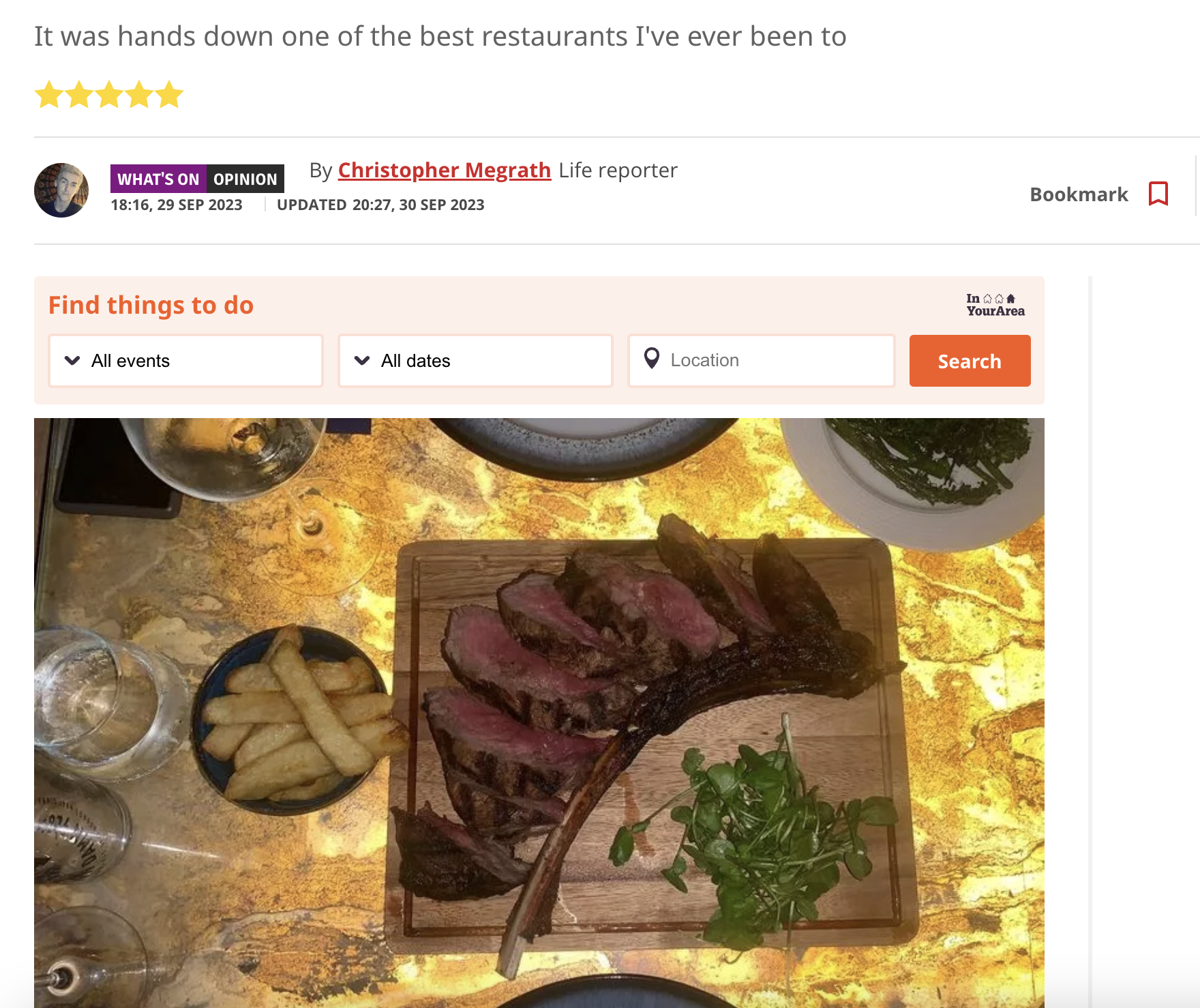Writing a business plan for your hospitality business
Discover bespoke business plan writing for your hospitality business from Laura Anne Hospitality Consultant Ltd.
“By failing to prepare, you are preparing to fail” the saying goes. And given the risks you’ll take when starting or making changes to your hospitality business, a thoroughly considered plan is not a luxury, but a necessity.
Having spent my entire career in hospitality and seen how the industry has needed to adapt to everything from ‘Eat Out to Help Out’ to the overnight doubling of gas bills, I can’t say I’ve seen it all... but I’ve seen a lot!
What never fails to surprise me though is how often my clients are shocked by a curveball. It could be not realising the cost of cooking oil and how much they’d need; not knowing a similar concept had submitted plans to open on their street; or not understanding that an adjustment of just half an hour to their opening times could dramatically increase trade.
All of these pitfalls can be avoided with a sound business plan from a hospitality consultant, who can use their experience of the industry to foresee issues, predict profitability and maximise the potential success of your business.
So in this blog on hospitality business planning I thought I’d answer some of the many frequently asked questions my clients ask when pondering this service. I hope it gives you support when considering the same, but please do contact me if there is anything you want to ask that isn’t covered below.
Not sure how to write a business plan?
We can help guide you, or write one for you.
Why do you need a business plan for your hospitality business?
There are many reasons to consider a business plan for your restaurant, bar or hotel. And in all honesty, even if you’ve been trading for a long time, a business plan can still support growth and give you the opportunity to look in a more considered way at the future.
However, here are four of the most common reasons my clients come to me asking for a business plan:
1. Defining strategy – this is often required when a hospitality business is jointly owned. Running a business together can have many advantages, but it can also add complexity when there is a difference of opinion on the direction of the business and its goals. A hospitality business plan written by a neutral third party can ensure alignment.
2. Start-up hospitality businesses – even for existing hospitality business owners, creating a start-up will go all the smoother if a sound business plan is in place. It will consider everything from potential competitors to your target market, and support you in costing everything from equipment to staffing.
3. Investment or loan – very often when you’re seeking an investment or loan for your hospitality company a business plan will be necessary to safeguard investors and banks of financial security before releasing funds.
4. Change of direction – perhaps your business model has changed? Maybe a situation out of your control has forced you to rethink? Whatever the reason, if your business is taking on a new direction a thorough business plan will ensure that change is for the better.
Why is it important to have a business plan for my restaurant?
Your hospitality business is something you’re likely to be passionate about – few of us enter this industry without a love of it and a drive to succeed. But without a business plan, it can be hard to make a success of it.
When I write a business plan for a client it will support them in many ways. For start-ups it can add creativity and practicalities to bring a concept alive and help you see it to fruition. I draw on my own experience and the vast first-hand knowledge I have of the hospitality industry to foresee problems.
I can help you to define a concept where there may be grey areas. And a business plan will help you to stay on track, giving you a journey to go on rather than jumping straight to the destination.
What is the difference between a feasibility study and a business plan?
If you’re unsure whether or not to commit to a business plan for your hospitality concept, I can also offer a feasibility study service, which will cost you less and give you a better idea of whether to go any further.
Essentially a feasibility study differs from a business plan in that it looks solely at “if” the business is feasible, not “how” to make it so – which is covered in a plan.
A feasibility study is not a big commitment, but it is a great first step if you’ve got that hospitality idea brewing in the back of your head and you’re desperate to know “what if?”.
A business plan is the next step; you’ve decided you’re going to do it and you need a direction to go in.
How much does it cost to have a business plan written for my food, drink or accommodation business?
Given the support it can garner, my clients say there is real value in a feasibility study or business plan.
Prices with Laura Anne Hospitality Consultant Ltd start from just £200 for a feasibility study, and from £695 for a business plan (depending on the scope of the project – for example a single high-street café will be less than a multi-venue luxury gastro-chain).
The proof is in the pudding!
If you’re still unsure whether having a business plan written for your hospitality business is for you, have a read of our case studies below...
Kabeer Afghan Street Food
Laura’s Business Plan: “I wrote a business plan for Kabeer Afghan Street Food to support with the development, and defining the concept, of this unique idea for the UK hospitality market. Part of that support was a feasibility study to see whether the owner’s idea “had legs”.”
The Feedback: “I planned to start a street food business and Laura helped me to get it off the ground. She has excellent knowledge of the industry and was available to answer any questions. A big thank you.” Mohsin Khan, Company Director, Kabeer Afghan Street Food
Laura’s Business Plan: “I was at the forefront of the Pendergast’s Steakhouse development team creating the concept and writing the business plan that has now been brought to life. It has been an absolute delight to see the owner’s vision realised, from our initial chat about his idea, to opening what aims to be one of the north-west’s best steakhouses.”
Laura’s Business Plan: “This was a bit of a step away from my usual hospitality business plans, but one I was very happy to take on. Liam’s business needed to secure a loan in order to grow; and I was able to apply the same principles to business plans I write for restaurants, bars and hotels to ensure he secured that vital cash for his business. It’s been a pleasure to see what this loan has done to transform LW Electrical Services.”
The Feedback: “Laura wrote me a business plan which secured me a start-up loan for my business. Extensive market research was conducted to define my target market, create a financial forecast and deliver an excellent executive summary. I would recommend Laura to anyone who needs help writing a business plan.” Liam Walton, Director, LW Electrical Services
To discuss how we can support you and your business with a plan, feasibility study and more, contact us for a free consultation call.


